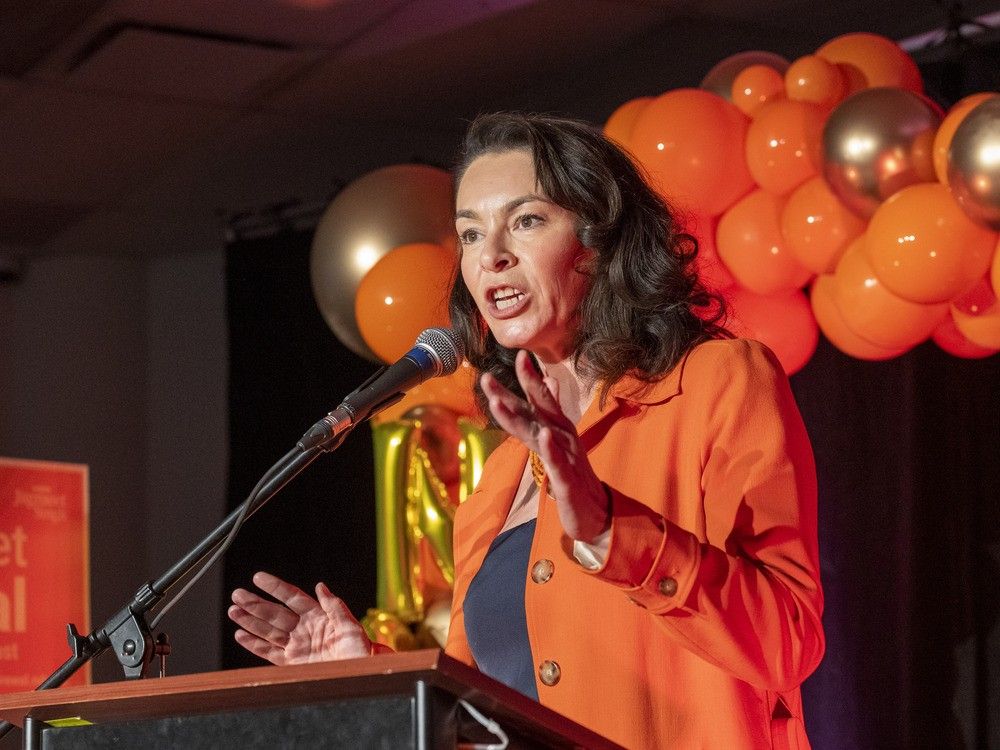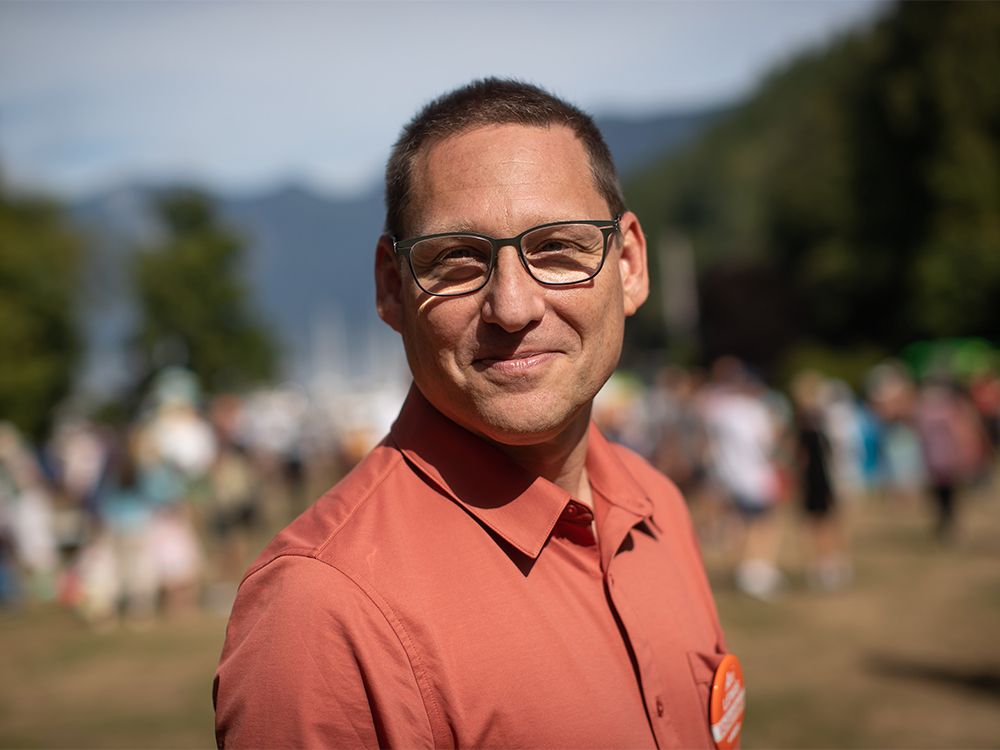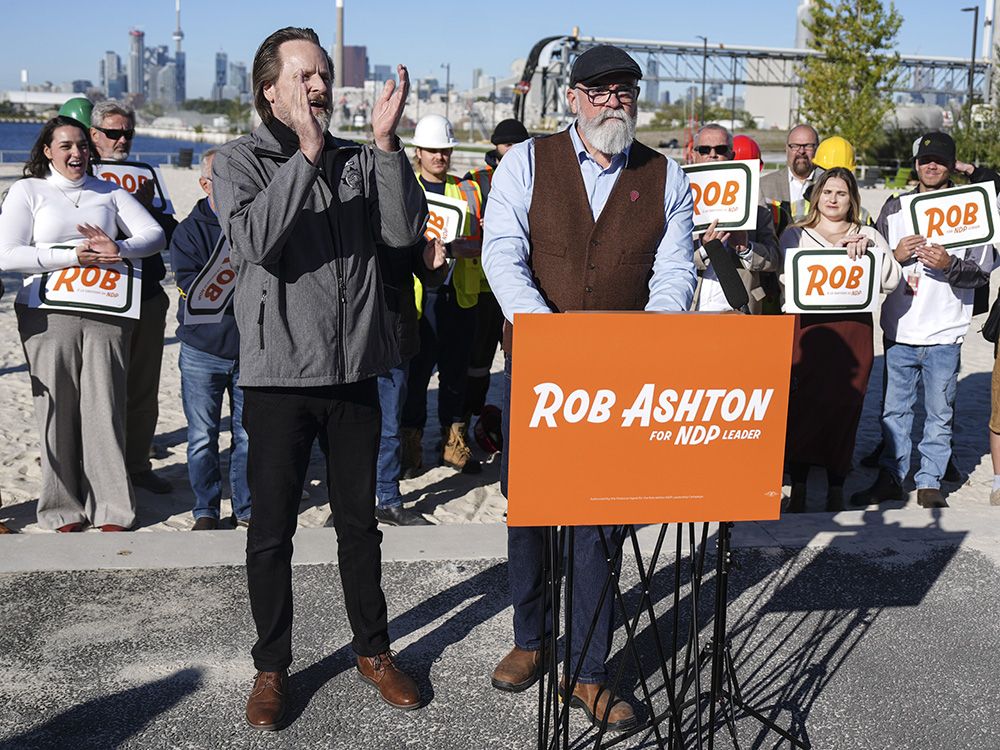
OTTAWA — Two separate paths to party renewal — and three very different contenders — have emerged as the race to choose the next leader of the federal NDP begins to take shape.
While still in its opening weeks, the contest is already shaping up as a referendum over whether the NDP should double down on courting middle-class moderates or focus its energies on reconnecting with its traditional blue-collar base.
“We’re starting to see two clear visions for the party emerge,” said former NDP strategist Erin Morrison, now a vice-president at Texture Communications. “One’s saying it’s got to be a bigger tent, and one’s saying we have to get back to our core roots of who we are as a party.”
“Those visions are not necessarily mutually exclusive, but they are different in terms of their focus and the strategy moving forward,” said Morrison.
National Post spoke with three of the four leadership candidates — Edmonton MP Heather McPherson, third-generation party scion Avi Lewis and British Columbia labour leader Rob Ashton — to get their thoughts on the big question at the heart of the race that will be decided next March. (The fourth, Campbell River, B.C., city councillor Tanille Johnston, didn’t respond in time for publication.)
McPherson said she was happy to be the big-tent candidate, pointing to the simple arithmetic of the NDP’s current circumstances.
“My offer … is that I want us to win more seats, because I think when more New Democrats get elected, more good things happen for Canadians. And so, for me, I think we need to start welcoming more people to come and sit around the table,” said McPherson.
The NDP had its worst result ever, in April’s federal election, sinking to just seven MPs, five fewer than the number needed for official party status. The party also saw its vote share drop by more than 10 per cent from the 2021 election, falling to a paltry 6.3 per cent.
McPherson said that it was impossible for the party to regain lost ground while subjecting its ranks to increasingly stringent purity tests .
“Ultimately, what we are is a political party, and ultimately as a political party, we need to win. The only way we help Canadians is if we win,” she said.
McPherson has already received some backlash for her efforts after her September campaign launch sparked a minor uproar online, with fellow NDP MP Leah Gazan writing on social media that McPherson’s dismissal of ideological “purity tests” was a racial dog-whistle .
“‘Purity test’ … protects the status quo, which has historically privileged white, male, and able-bodied workers as the default voice of the working class,” wrote Gazan in a widely shared post.
Interim NDP leader Don Davies told reporters last week that he wasn’t worried by “divisions” within his caucus over the leadership race and, in fact, welcomed such “robust discussions.”
”You know, we’re a very democratic party … and sometimes democracy can expressed in robust ways,” said Davies.
Gazan has ruled out a bid for the NDP leadership.
Lewis says he respects McPherson but has a different take on the NDP’s electoral collapse, arguing that ex-leader Jagmeet Singh’s 2022 supply and confidence agreement with then prime minister Justin Trudeau created confusion about what the party stood for.
He said he saw this confusion firsthand when he ran unsuccessfully for a seat in downtown Vancouver .
“From knocking on around 10,000 doors myself … I can tell you that Canadians, at least in Vancouver, were super confused. Jagmeet seemed so angry at Justin all the time, and yet he was still supporting him and keeping his government in place,” said Lewis.

He added that, as a result of this confusion, voters didn’t see the NDP as a “serious alternative” to the Liberals.
Lewis said that the way forward for the NDP isn’t to tack to the mushy middle, but to speak uncomfortable truths about the structural factors making life so unaffordable for everyday Canadians.
“I believe that the NDP’s role in our democracy is to have the correct diagnosis, because we are the party that is critical of capitalism. And I think without being critical of the economic system in which we live, you actually can’t understand why things are so hard for working people,” said Lewis.
Lewis has come out of the gate swinging , promising to break up major grocery, telecom and banking oligopolies, and slap a wealth tax on high-net-worth Canadians.
He says that the revenue accrued from making those at the top pay their fair share will help fund big-ticket social policies like a national rent cap, public option for groceries, and expanded national prescription and mental health care coverage.
Lewis, the son of former Ontario NDP leader Stephen Lewis and grandson of former federal leader David Lewis, described his own upbringing in Toronto as “upper-middle class,” but said this wouldn’t make him any less of an effective voice for workers.
He said the proof of his connection to workers, in Canada and across the world, is in his extensive body of work as a journalist and documentary filmmaker focused on telling the stories of the left behind.
“The notion that I am somehow ill equipped to speak in the language of working people is just a caricature. It’s what I’ve been doing all my life as a journalist, and I’m very proud of the incredible breadth and range of connections I’ve had with people, from peasant farmers to factory workers to migrant workers,” said Lewis. “I have connected with every single kind of person there is, because that’s the work.”
Lewis still acknowledged that his family pedigree makes him the “nepo baby” in the race, and said he could handle the name calling.
“‘Nepo baby’ is fine and cute. I mean it’s not my fault, but I wear it … I’m okay with the epithet,” said Lewis.
One candidate who’ll have no trouble demonstrating his blue-collar bona fides is newcomer Ashton, currently the B.C.-based president of the International Longshore and Warehouse Union Canada.
Ashton, a burly, plainspoken career longshoreman with a Santa-esque white beard, is quickly being embraced as the vibes candidate among the most online segment of the party. A 2023 clip of him declaring a “class war” while decked out in a vintage Montreal Expos jersey — a gift from longshore workers at the Port of Montreal — made the rounds on social media as he jumped into the race earlier this month.
Like Lewis, Ashton hasn’t shied away from class rhetoric on the campaign trail.
“I’m running because I’m sick and tired of watching working people get screwed,” said Ashton at his leadership announcement near Toronto.

Ashton told the National Post that his blue-collar background, and ability to communicate with other workers, would help the NDP reverse the Pierre Poilievre-led Conservative party’s gains with working-class voters .
He says that career politician Poilievre’s appeals to Canadian workers lack authenticity.
“I don’t think Pierre Poilievre’s drank more than one cup of coffee in a lunch room in his life,” said Ashton.
Ashton has said he’ll take time to speak with party members before rolling out a detailed set of policies.
Lewis, for his part, said he not going to try to out-everyman Ashton.
“If this NDP leadership race is a personality race, and if we’re being chosen by our biographies as reported by the mainstream media, then we’ve already lost,” said Lewis.
Lewis said he was more focused on substance than image.
Clement Nocos, director of policy and engagement at the Broadbent Institute, says that image does matter in social democratic politics, as shown by the frequent criticisms Singh received for wearing expensive suits and toting luxury items .
“There’s one thing to be said for aesthetics … or maybe what our right-wing opponents like to call virtue signalling,” said Nocos.
Nocos said this criticism was unfair, as Singh has explained that he dressed meticulously to overcome implicit racial bias. He nevertheless conceded that Singh’s sartorial choices weren’t always “communicated properly” to the public and ended up becoming a distraction.
Progressive blogger and lapsed NDP voter Evan Scrimshaw said Ashton is the most likely of the three candidates to coax him back into the fold.
“Ashton’s got to put a lot of meat on the bone, still but he at least understands that the NDP needs to centre economic class as their defining axis, and seems to be hinting towards less purity tests on social progressive shibboleths,” said Scrimshaw.
Scrimshaw voted Liberal in April, after voting NDP in 2021.
He called McPherson “continuity with a different face” and panned Lewis’s costly promises as “unserious.”
The three contenders will share a stage at the leadership campaign’s first candidates forum, set for Oct. 22 in Ottawa .
National Post
rmohamed@postmedia.com
Our website is the place for the latest breaking news, exclusive scoops, longreads and provocative commentary. Please bookmark nationalpost.com and sign up for our politics newsletter, First Reading, here.